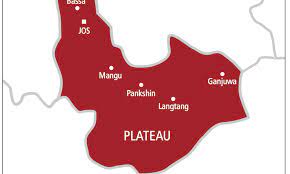|
Getting your Trinity Audio player ready...
|

At least 85 people have been killed in the ongoing clashes between herders and farmers in Plateau state, leading to the displacement of more than 3,000 people, according to reports on Thursday.
The violence broke out on Monday in several villages of Plateau State, resulting in the deaths of 30 people. The area has a history of ethnic and religious tensions. The violence has continued, and on Thursday, residents of several villages in the Mangu district of Plateau state were still caught up in the violence, with some fleeing their homes, according to local sources and witnesses.
The cause of this week’s attacks in Mangu is unclear, but it is common for tit-for-tat killings between herders and farmers to escalate into raids on villages by heavily armed gangs. According to the chairman of the local government council, Daput Minister Daniel, 85 bodies have been recovered so far. Joseph Gwankat, a community leader from the local Mwaghavul Development Association, confirmed the same number of deaths, stating that a search and rescue team had discovered 85 dead bodies.
According to the National Emergency Management Agency (NEMA), thousands of people were displaced, and hundreds of houses were destroyed due to the violence in Plateau state.
Eugene Nyelong, the regional coordinator at NEMA, reported that 3,683 people were displaced, and emergency relief was being sent to those in need. Over 720 houses were either partially or completely destroyed. The number of people injured was still unclear as of Thursday.
Joseph Gwankat, the community leader, mentioned that 57 injured people were being treated in hospital, while Eugene Nyelong from NEMA estimated that around 216 people were injured in the attacks.
Police have arrested five people in connection with the violence, and a heavy security presence has been deployed to restore calm to the general area, according to police spokesman Alfred Alabo.
However, Solomon Maren, a lawmaker representing Mangu and neighboring Bokkos in the House of Representatives, reported that there were still tensions in the area. He said that gunshots were heard early Thursday afternoon and that people were running for their lives.
Maren stated that “hundreds” of individuals who are not from the communities and are “armed to the teeth” are perpetrating the violence. He further mentioned that 17 communities have been completely ravaged, and over 100 people have been killed so far.
The State Emergency Management Agency (SEMA) visited the area on Wednesday and described the situation as dire. Juni Bala, the director of search and rescue at SEMA, reported that they saw houses still burning, but they couldn’t go further because the youth were angry.
He said that children and women by the thousands were moving on the road and needed shelter, food, bedding, and non-food items. Amnesty International Nigeria condemned the violence, calling it “deplorable attacks” that showed “complete disregard for human life.”
The organization urged the Nigerian authorities to protect the people and bring the actual perpetrators of the attacks to justice. Violence has been on the rise in Nigeria over the last few weeks after a brief period of calm during the February presidential and March state elections.
Earlier, gunmen attacked a US convoy carrying local staff and accompanied by police officers on Tuesday in Anambra State, southeast Nigeria, killing at least four of the travellers.
The military is facing various challenges, including a 14-year-old jihadist insurgency in the northeast, piracy in the Gulf of Guinea, and kidnappings by armed criminals across Nigeria.
AFP



